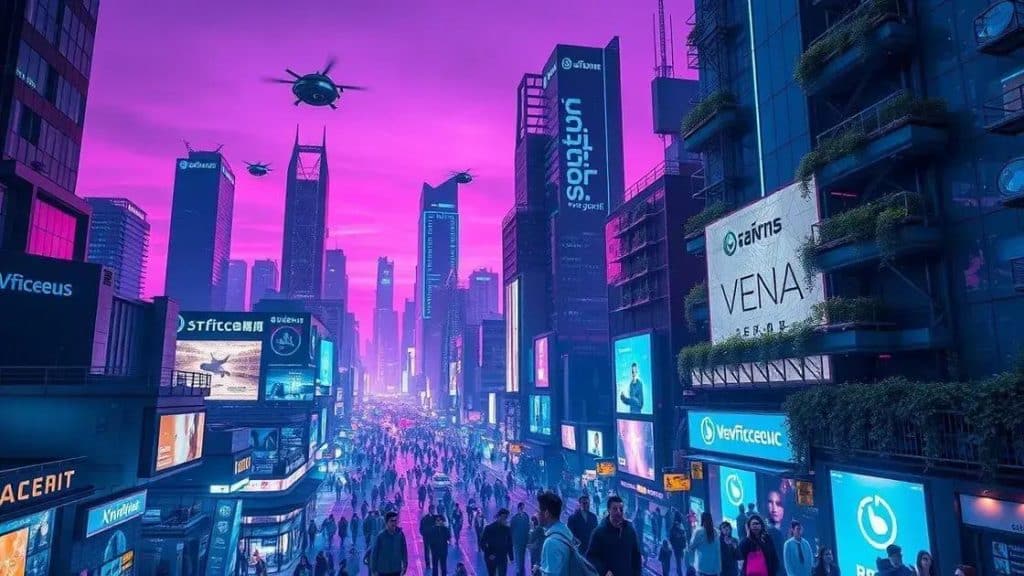Transportation technology innovations 2025

Transportation technology innovations in 2025 will focus on autonomous vehicles, sustainable solutions, and smart infrastructure, significantly enhancing personal mobility and efficiency in urban transport systems.
Transportation technology innovations 2025 are set to change the way we think about travel. With advancements happening rapidly, have you ever wondered how they’ll impact your daily commute or long-distance trips?
Overview of transportation technology trends
Understanding the overview of transportation technology trends is crucial for anyone looking to navigate the future of travel. Rapid advancements are changing how we perceive movement, and these trends promise to make transportation safer, faster, and more efficient.
As we dive deeper, we can identify several key trends that are reshaping the transportation landscape. The integration of technology is allowing for seamless operations and elevated experiences.
Key Technologies Impacting Transportation
Several technologies are pivotal in this transformation:
- Autonomous Vehicles: Self-driving cars are becoming a reality, showcasing how AI can enhance personal mobility.
- Electric Vehicles: The rise of electric cars is being driven by sustainability concerns, offering eco-friendly alternatives.
- Smart Transportation Systems: These systems leverage real-time data to optimize traffic flow and improve public transportation efficiency.
- Mobility as a Service (MaaS): This concept combines various transport services into a single accessible solution for users.
Another exciting trend is the development of urban air mobility. Drones and air taxis are on the brink of commercial use, offering a new dimension to urban transit. As these innovations unfold, urban areas will likely see a significant decrease in congestion, making getting around much smoother.
Moreover, green technology initiatives are pushing the industry toward renewable energy options, solidifying the trend towards sustainability. Investments in infrastructure to support electric and hybrid vehicles are expanding rapidly.
In summary, keeping an eye on these trends can help individuals and organizations prepare for the rapid changes in the transportation sector. Understanding how technology influences the way we travel provides insights for making informed decisions about future mobility.
Key innovations transforming public transport

The key innovations transforming public transport are reshaping the way we move in urban environments. With growing populations and increased demand for efficient travel, cities are adopting new technologies to enhance public transportation systems.
One of the most significant advancements is the use of smart technology. Many cities now rely on real-time data to manage transit operations. This helps in eliminating delays and making services more reliable.
Smart Ticketing Solutions
Modern ticketing methods are also changing the landscape. Passengers can now use mobile apps to purchase tickets, making their journeys smoother and faster. Some benefits include:
- Convenience: Avoiding queues at ticket machines is a huge plus.
- Integration: Linking different transport modes (buses, trains, etc.) simplifies the travel process.
- Real-time Updates: Travelers receive notifications on delays or service changes instantly.
Another transformative innovation is the shift towards sustainability. Many cities are introducing electric buses and trains to reduce carbon footprints. This not only benefits the environment but also leads to lower operating costs in the long run.
Moreover, the incorporation of autonomous vehicles into public transport is gradually becoming a reality. These vehicles promise to provide safe and efficient transportation options without reliance on human drivers.
Enhancing user experience is also a top priority. Innovative information displays at bus stops and train stations keep passengers informed about arrival times and service disruptions. Accessibility improvements, like better-designed vehicles and infrastructure, ensure that everyone, including people with disabilities, can benefit from public transport advancements.
Impact of technology on personal mobility
The impact of technology on personal mobility is profound, revolutionizing how we move from place to place. As we embrace numerous advancements, our daily commutes and travel experiences are becoming easier and more efficient.
One notable change is the rise of ride-sharing services. Apps like Uber and Lyft have transformed the way people think about transportation. Instead of owning a vehicle, many now rely on these easy-to-use platforms to book rides at their convenience.
Electric and Autonomous Vehicles
Another major innovation is the emergence of electric vehicles (EVs). With lower emissions and reduced fuel costs, more consumers are making the switch. Not only do they support the environment, but they also provide a quiet and smooth driving experience.
- Cost Savings: EVs typically have lower operating costs than traditional gas-powered cars.
- Government Incentives: Many regions offer tax breaks and subsidies to encourage EV adoption.
- Charging Infrastructure: With more charging stations being built, it’s easier than ever to charge an EV.
As we explore the future, autonomous vehicles are also poised to make a significant impact on mobility. These self-driving cars promise to enhance safety, reduce traffic mishaps, and provide greater accessibility for individuals who cannot drive.
The integration of smartphones with mobility solutions is yet another crucial advancement. Users can now access real-time data and navigation tools, allowing for more informed travel choices. As technology continues to evolve, the way we experience personal transport will undoubtedly change, making it more user-friendly and efficient.
As we consider these developments, the focus on sustainability remains paramount. Innovations in personal mobility seek to align with eco-friendly practices, paving the way for a more environmentally conscious transportation future.
Future predictions for transportation in 2025

The future predictions for transportation in 2025 indicate exciting changes ahead. As technology continues to evolve, the landscapes of cities and travel will adapt accordingly. Recent advancements suggest we will see smarter transportation solutions that prioritize efficiency and sustainability.
One major prediction includes an increase in the use of autonomous vehicles. By 2025, many urban areas are expected to have fully functioning fleets of self-driving cars, buses, and shuttles. This shift has the potential to significantly reduce traffic accidents caused by human error.
Sustainable Transportation Solutions
Another key trend is the heightened focus on sustainable transportation. As the global push for eco-friendliness grows, cities are likely to adopt more electric cars and public transit options. The aim is to reduce emissions and enhance air quality, making urban living healthier.
- Electric Vehicle Adoption: More charging stations will be available, and a larger percentage of the vehicle fleet will be electric.
- Shared Mobility Services: Ride-sharing and car-sharing services will become integral to city transportation, minimizing the need for personal vehicle ownership.
- Eco-friendly Transit Systems: Public transit will incorporate green technologies, such as solar panels on buses and rail systems.
Furthermore, the integration of smart infrastructure will play a significant role. Traffic lights and signs will communicate with vehicles, leading to smoother traffic flow and decreased congestion. Cities will likely implement smart sensors and data analytics to monitor and manage transportation networks in real time.
Another element to consider is the increase in mobility as a service (MaaS). This approach will link various transportation options into one seamless user experience. People could plan, book, and pay for different modes of transport through a single app, enhancing convenience and efficiency.
FAQ – Frequently Asked Questions about Transportation Technology Innovations 2025
What are the main innovations expected in transportation by 2025?
By 2025, we can expect advancements such as autonomous vehicles, electric public transport, and enhanced smart infrastructure for traffic management.
How will autonomous vehicles improve safety in transportation?
Autonomous vehicles will reduce accidents significantly by eliminating human error, making travel safer for all road users.
What role does sustainability play in future transportation trends?
Sustainability is a major focus, with increased adoption of electric vehicles and eco-friendly public transportation options to reduce environmental impact.
How will smart technology influence personal mobility in the future?
Smart technology will provide real-time data and seamless integration of various transport modes, enhancing convenience and efficiency for users.





